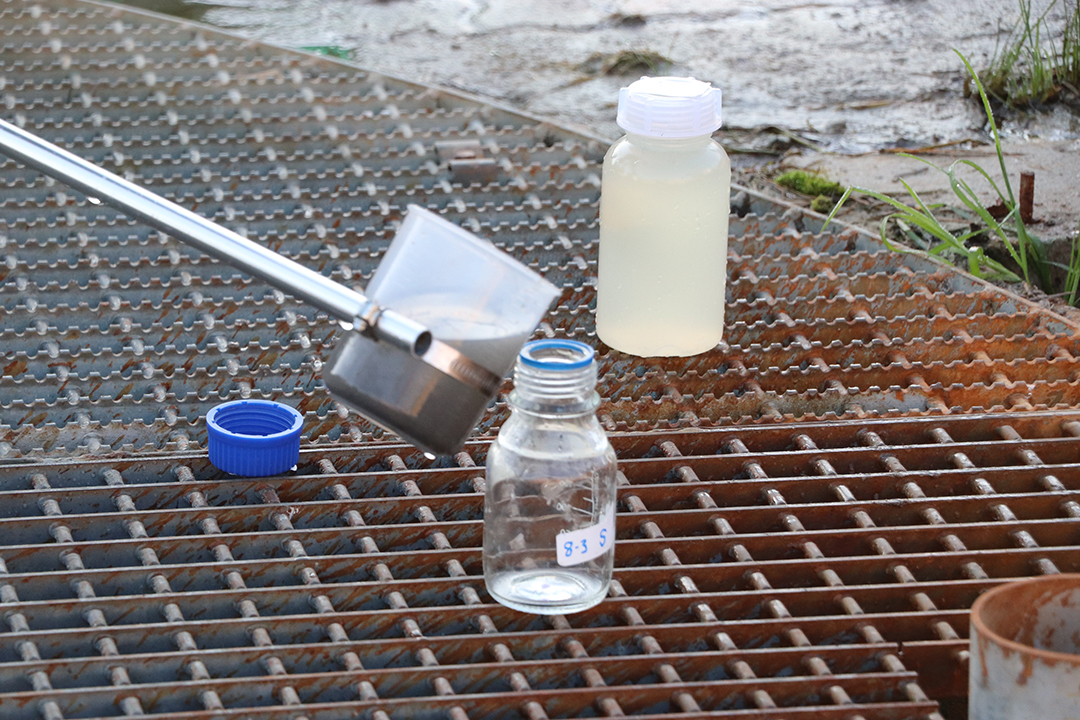SA Tests Sewage for COVID-19 Early Warning
ADF STAFF
Every Monday in four of South Africa’s nine provinces, a wastewater treatment plant technician fills a small bottle with sewage for COVID-19 testing in a laboratory.
It’s a dirty job, no doubt, but the benefits far outweigh the unpleasantness.
Scientists in the Netherlands were among the first to use this method. They found the disease’s pathogen in one Dutch city’s sewage system weeks before testing confirmed the city’s first cases in early 2020.
Sewage surveillance could reliably detect the presence of the virus seven to 14 days before symptoms appeared in the population. Word of a new tool in the fight against COVID-19 quickly spread around the world as a noninvasive way to do large-scale testing and anticipate outbreaks.
The South African Medical Research Council (SAMRC) sprang into action.
“When the idea of a wastewater-based early warning system for COVID-19 in South Africa was first mooted within the SAMRC, there was immediate recognition of the preventative value inherent in such a system,” Sizwe Nkambule of the SAMRC Environment and Health Research Unit told ADF. “Our wastewater epidemiology program surveils more than 70 wastewater catchment areas in South Africa, and the results are being used by public health stakeholders in various ways.”

One of those ways is to inform the public when pathogen levels rise and encourage firmer adherence to guidelines.
A May 6, 2021, headline on South African news site Times Live read, “Western Cape ‘on alert’ as affluent areas see rise in positive tests.” The article reported that the SAMRC had “produced worrying data on Mitchells Plain [one of South Africa’s most densely populated townships], where levels of detectable SARS-CoV-2 are the highest they have been this year.”
While the first wave raged across the country, the SAMRC completed its proof-of-concept studies in June 2020 and scaled up wastewater monitoring in July. By October the early warning system was providing weekly updates on COVID-19 wastewater trends to health authorities.
In November 2020, the council launched a COVID-19 wastewater dashboard.
Relaunched in June 2021, “the data are now presented in formats that are more closely aligned with the needs of public health decision-makers,” Nkambule said. “The dashboard is also more interactive and easier to use by the general public.”
South Africa remains the continent’s hardest-hit country with nearly 1.7 million confirmed cases and more than 57,000 deaths, according to June 7 statistics from the Africa Centres for Disease Control and Prevention.
One of the main challenges the SAMRC faces is expanding monitoring into more provinces and municipalities.
“Households in urban, rural and remote settings are not always connected to wastewater sewerage systems,” Nkambule said.
According to the country’s 2011 census, 40% of households did not have a flush toilet tied into a sewer system. Methods for unsewered systems are still in development.
In Pretoria, the South African Water Research Commission is working with a private company called Waterlab to expand testing to unsewered communities by sampling rivers and surface water.
Officials have launched pilot programs to monitor wastewater for COVID-19 in Lagos, Nigeria, and Nairobi, Kenya.
Working with sewage might be a deal-breaker for most, but Nkambule finds the work rewarding.
“It is, most importantly, of enormous public health value,” he said. “Wastewater epidemiology has in the past proven its societal worth in the role it played in combating polio. In the face of the COVID-19 pandemic, wastewater is once again demonstrating its merit as a fundamental tool to help prevent disease and death.”


Comments are closed.